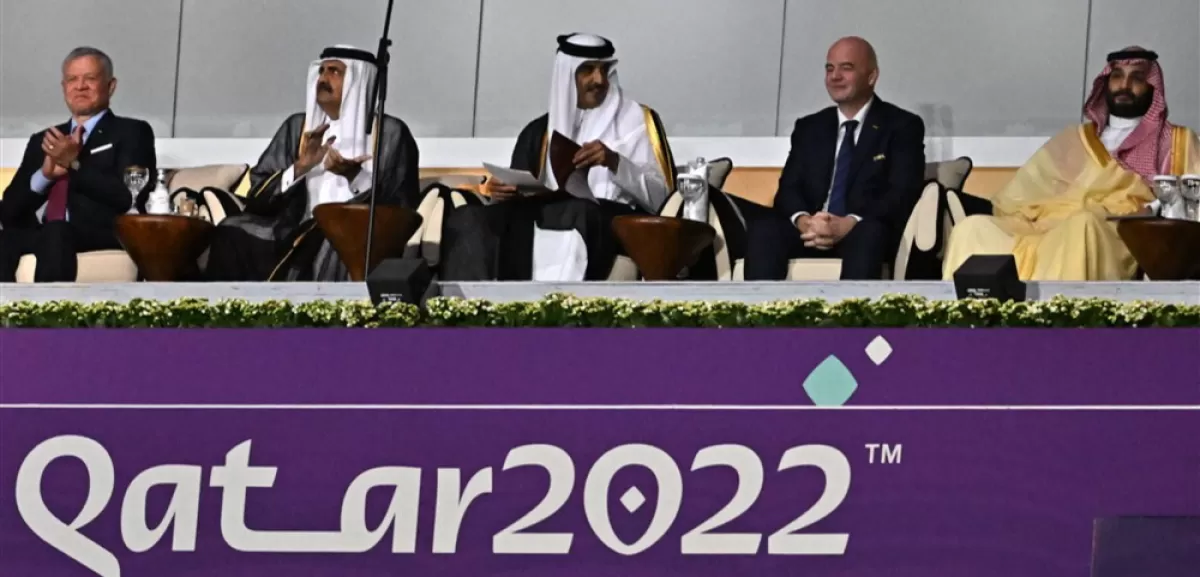
The World Cup in Qatar has been marred by controversy ever since the small Gulf emirate was named host of the tournament despite doubts about the country's human rights record. Many of the problems related to the Championship have, apparently, nothing to do with sports, but the big international competitions are not only about sports, they are always about politics as well.
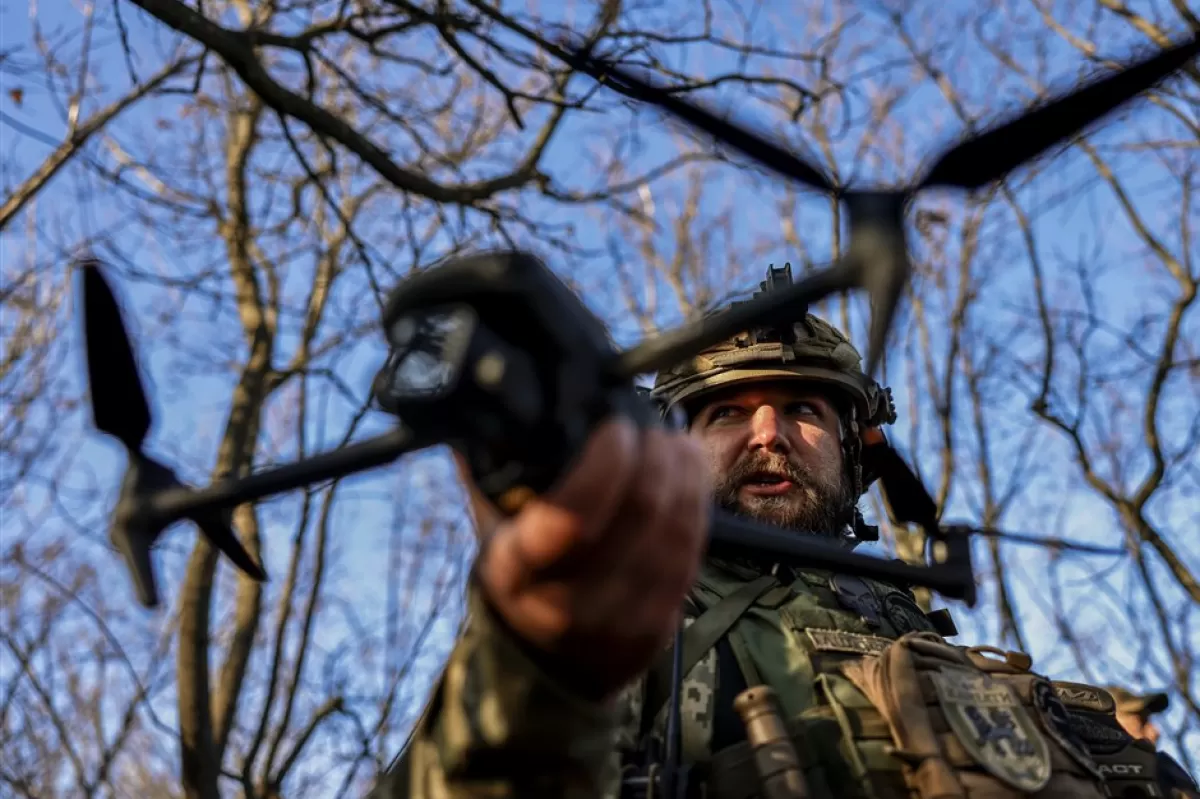
Originally developed as surveillance aircraft, unmanned aerial vehicles (UAVs) – commonly known as drones – underwent a number of transformations, from aircraft used to carry out tactical airstrikes to weapons included in the arsenal of modern warfare, the same as artillery and aviation. Drones play a key role in the war in Ukraine as well, where in recent weeks they have been primarily used as instruments of terror.

Turkey has bombed Kurdish positions in Iraq and Syria in response to the bomb attack in Istanbul, warning this is just the beginning. A wider operation in Syria would help the Erdoğan regime draw attention away from the country’s economic troubles. Besides, it might also be a first step towards solving the refugee crisis. Russia, a country involved in the Syrian conflict, could turn a blind eye to Ankara’s moves because it is interested in exporting natural gas via pipelines transiting Turkey.
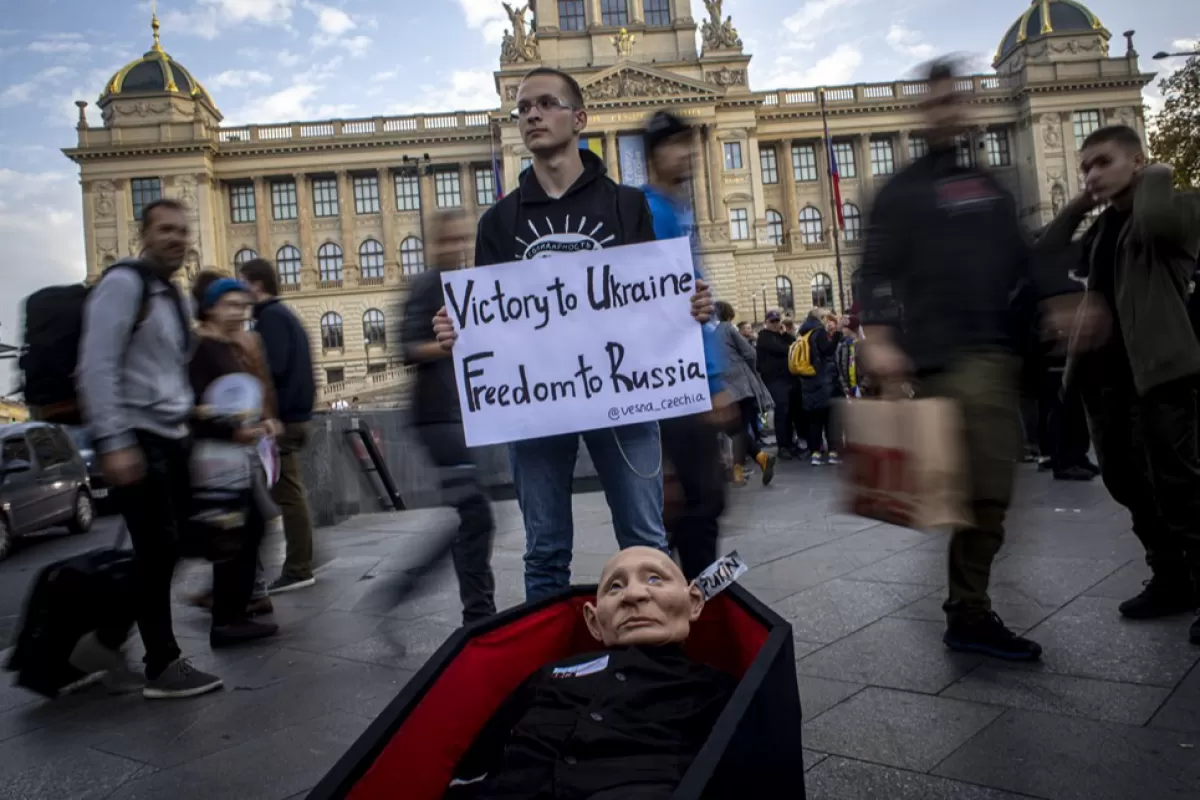
The war in Ukraine is not going well for Russia and the regime of Vladimir Putin, who threw his country into the affair. Although Putin forced all his people to say in February 2022 that Ukraine must be destroyed, the final decision was his and he will answer for it, alone or with others. And that’s why many Western and Russian analysts started wondering whether Putin's “reign” is coming to an end and who might succeed him.
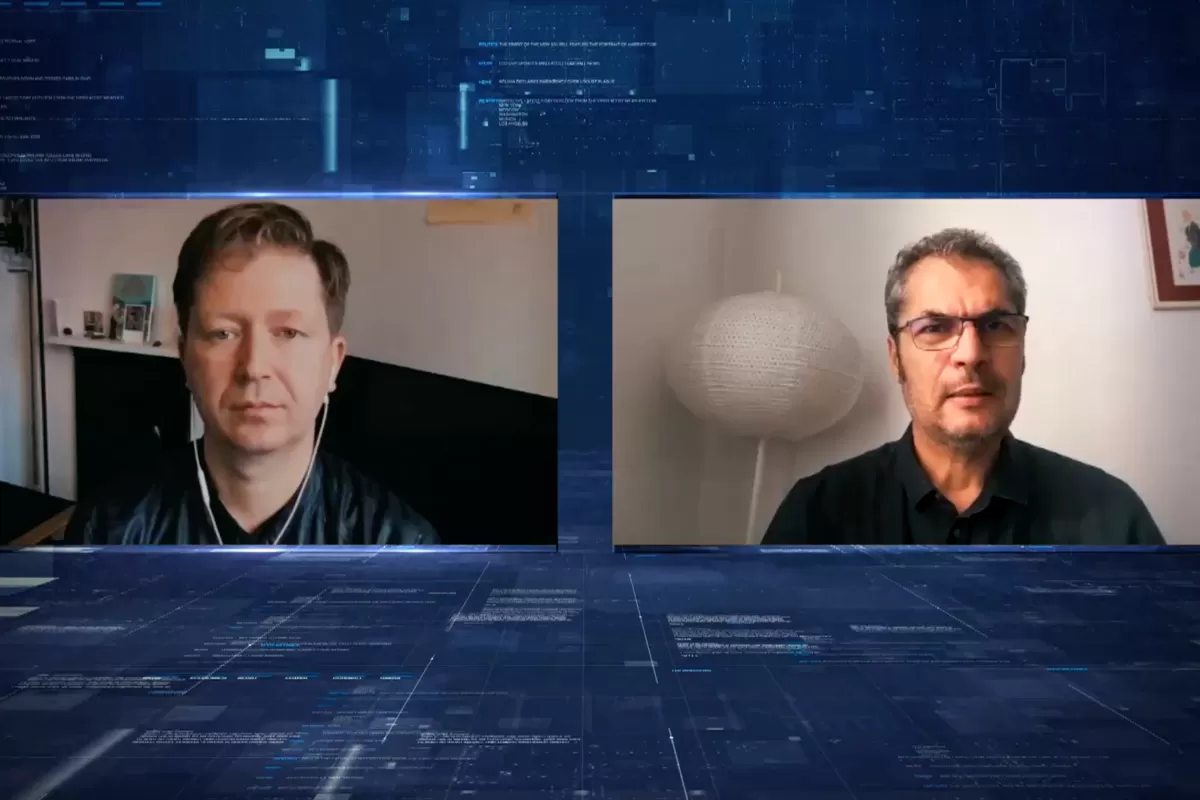
Putin's Russia is becoming more and more like Stalin's Russia, according to journalist Andrei Soldatov, one of the most respected experts on the Russian secret services. In an interview with Veridica and TVR, Soldatov explained how Putin corrupted Russian society, why the FSB is the successor to the Soviet KGB, what the methods and mentality of intelligence officers are, and how they came to believe and trust him also convince Putin that a war in Ukraine was necessary.
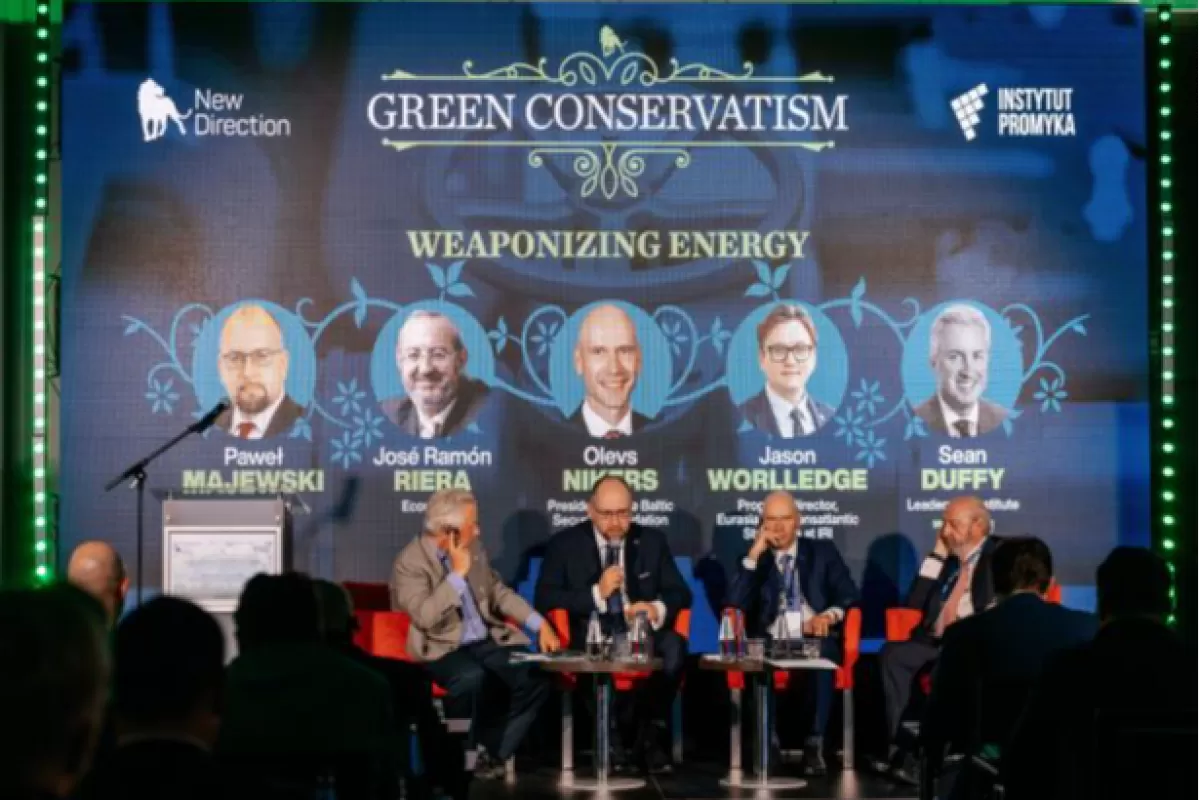
For the Baltic States and NATO, the best outcome of the war in Ukraine would be a complete defeat of Russia, according to the president of the Baltic Security Foundation, Olevs Nikers. However, Nikers feels that the most likely scenario for the end of the war would be a peace agreement, which means that the Baltic states and the Western world will be forced to deal with Russia on the long run.

Syria remains a country ravaged by conflict and a deep humanitarian crisis, a place of conflicting interests of multiple state and non-state actors, says the Chargé d'Affaires of the European Union to Syria, Dan Stoenescu*. In an interview for TVR and Veridica, Dan Stoenescu explained that, although it doesn’t recognize the Assad regime, the EU keeps communication channels open in order to provide assistance to the Syrian people. The EU official also spoke about the link between the war in Syria and the one in Ukraine.

The Internet caught fire last week with the fake news that the world's billionaires, led by Elon Musk, would celebrate Halloween in Romania. From the joy of the traders along the entire Rucăr - Bran corridor, to the currency dealers’ hope for some lucrative combinations and culminating in the raging of a delicate senator filled with authentic, countryside orthodox sentiments, we all had our own expectations from, reactions to and opinions about the (pseudo)event.

While the Kremlin backs the criminal opposition in Chișinău, which is trying to destabilize the Republic of Moldova in order to take power and discard any criminal investigation against itself, Russian propaganda touts the protests staged by Shor Party, the anti-Western statements of the former Socialist party and criticizes the current head of state, Maia Sandu. Veridica has reviewed the main narratives advocated by the Russian government media with respect to the Republic of Moldova.
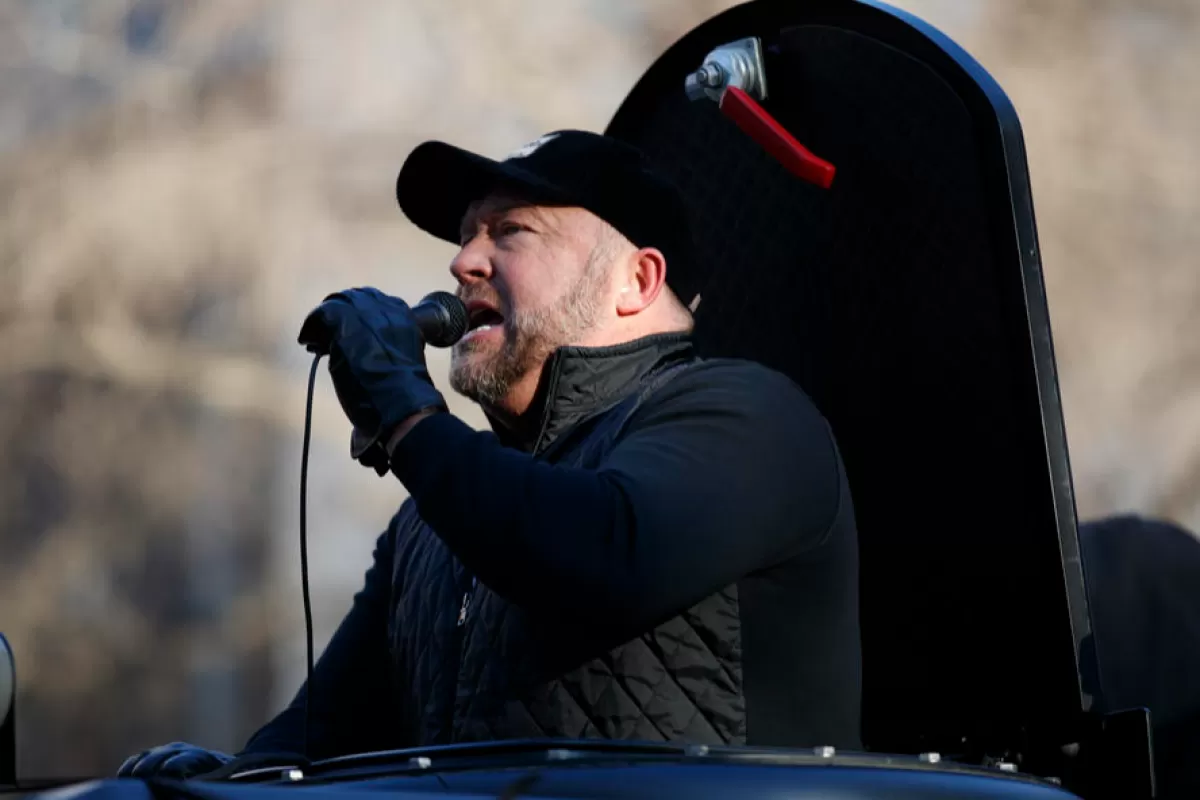
Alex Jones, one of the best known American conspiracy theorists, was sentenced to pay nearly 1 billion USD after claiming for years the Sandy Hook Elementary School shooting never actually took place and was actually staged. The sentence represents a landmark for combating the increasingly toxic phenomenon of fake news. The battle might have been won, but the war wages on.

Many Russians who have fled Putin’s partial mobilization have ended up in Georgia, and their presence in this country is creating demographic, economic, political and, obviously, social problems. Besides, Tbilisi authorities cannot be sure whether each of these migrants is a fugitive or if they are agents on Moscow’s payroll. All that is generating a national security predicament that must be managed in due time while the country is trying to maintain its European track, after failing to secure the EU candidate status this year.

Octavian Magas luptă chiar din primele zile ale războiului în cadrul armatei regulate ucrainene. Este etnic român, originar din regiunea Cernăuți. Magas a supraviețuit bombardamentelor intense ale rușilor, în vară, a văzut bucuria oamenilor din Harkov, eliberați de forțele ucrainene, dar și ostilitatea celor din zone rusificate. A trebuit și să treacă, la fel ca nenumărați alți militari ucraineni, peste pierderea unor camarazi și prieteni. Într-un interviu acordat în exclusivitate, Octavian Magas a povestit, pentru Veridica, cum a văzut și a trăit primele opt luni de război.

In the first half of 2022, Turkey seemed to be trying to tone down its aggressive policies in the Middle East and the Eastern Mediterranean. Yet all these efforts were but a ruse. In fact, Ankara never renounced key elements underlying its aggressive strategy. It has recently actually dialed up its aggression in relations with Tripoli, which can further deteriorate the situation in the Eastern Mediterranean and the Middle East.

A genuine taboo of international relations, which responsible leaders always sought to avoid in times of crises, the nuclear “button” has become commonplace in Russian rhetoric in recent years. Drawing on his crude professional experience, which is based on operative textbooks and a number of heroic legends fabricated by Soviet propaganda, Putin is confident that restraint is but a sign of fear. Lacking in any sense of intellectual finesse, the Russian leader has managed to trivialize the nuclear threat, which proves he doesn’t always have a good understanding of the terms he uses.

Serbia has been, for years, Russia’s closest ally in the Balkans. For Moscow, the relationship is a means to project an image of power and international relevance. Belgrade, on the other hand, plays the pro-Russian card to show that it has an alternative to a West that bruised its ego during the Kosovo war, but also for some pragmatic reasons, such as Russia’s support in the UN Security Council and its role as an energy provider. Belgrade’s real interests lie, however, with the EU, and the war in Ukraine may bring about a change – albeit a slow one – in its relationship with Russia.
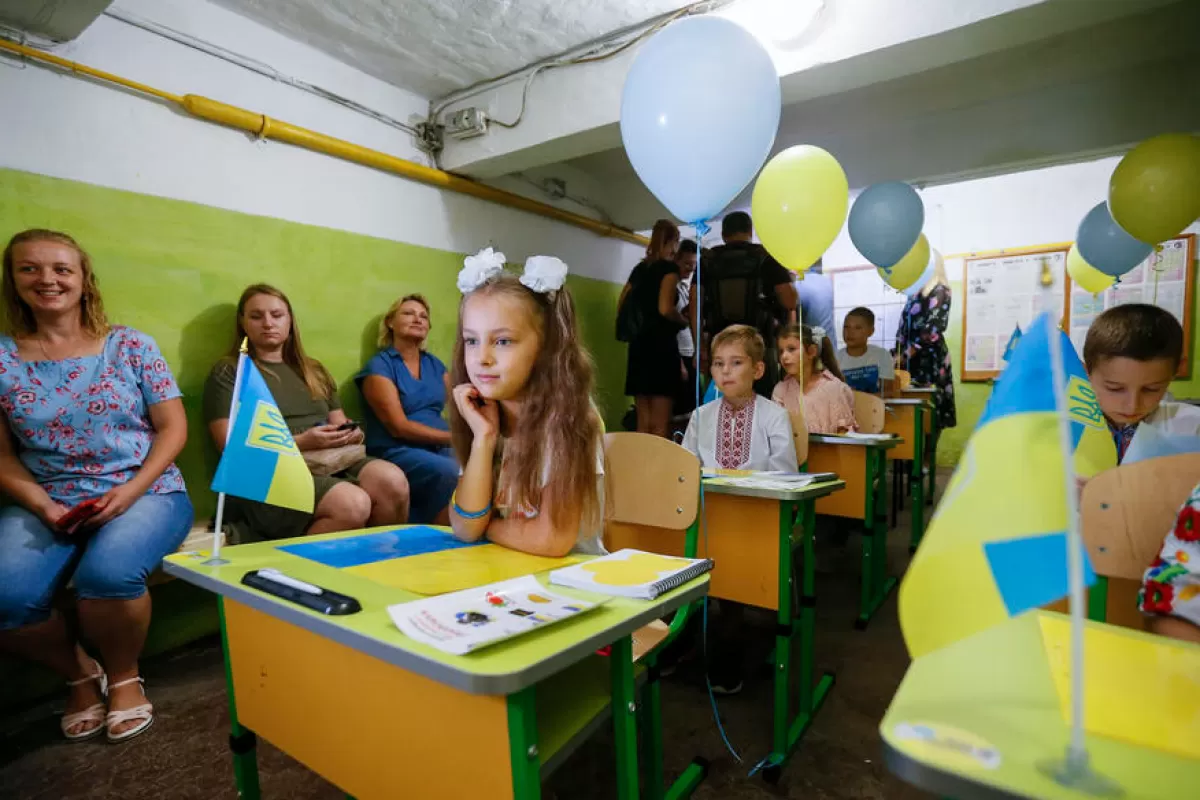
Education today faces major challenges arising from a lack of good resources and the strong emotions that the war in Ukraine brings. We spoke with three history educators from Poland and Ukraine about the ways in which the war is affecting their work, both personally and professionally.

Despite causing heavy criticism and dissatisfaction with their response to the Covid-19 pandemic, taxes, and other issues, Prime Minister of Latvia Krišjānis Kariņš, and his party “New Unity” will most likely form the new government following the parliamentary elections held on October the 1st. However, the elections did significantly alter the landscape of Latvian politics.
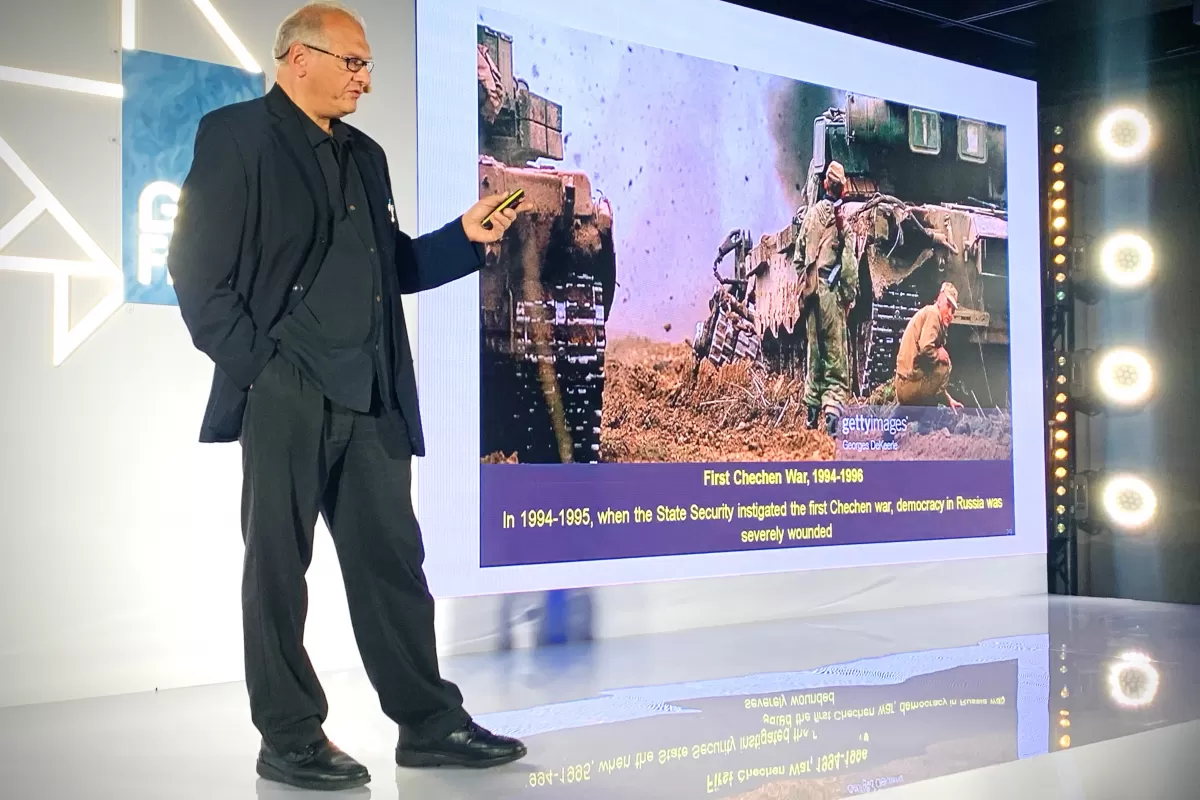
Vladimir Putin’s original plan was to subdue Ukraine without bloodshed and create a joint Russian-Ukrainian-Belarusian army that he could use to conquer Baltic States and the Republic of Moldova, the Russian-American expert Yuri Felshtinsky argues, adding that Moscow’s recent actions suggest, despite all the threats, that no nuclear weapons will be used against Ukraine.

Pakistan has recently faced one of the biggest natural disasters in the country’s history. Tens of millions of people were affected by the far-reaching floods caused by the massive rainfall reported in this year’s monsoon season. Islamabad claims the intensity of this disaster is a result of climate change. This launches a new warning against the devastating effects of this phenomenon.
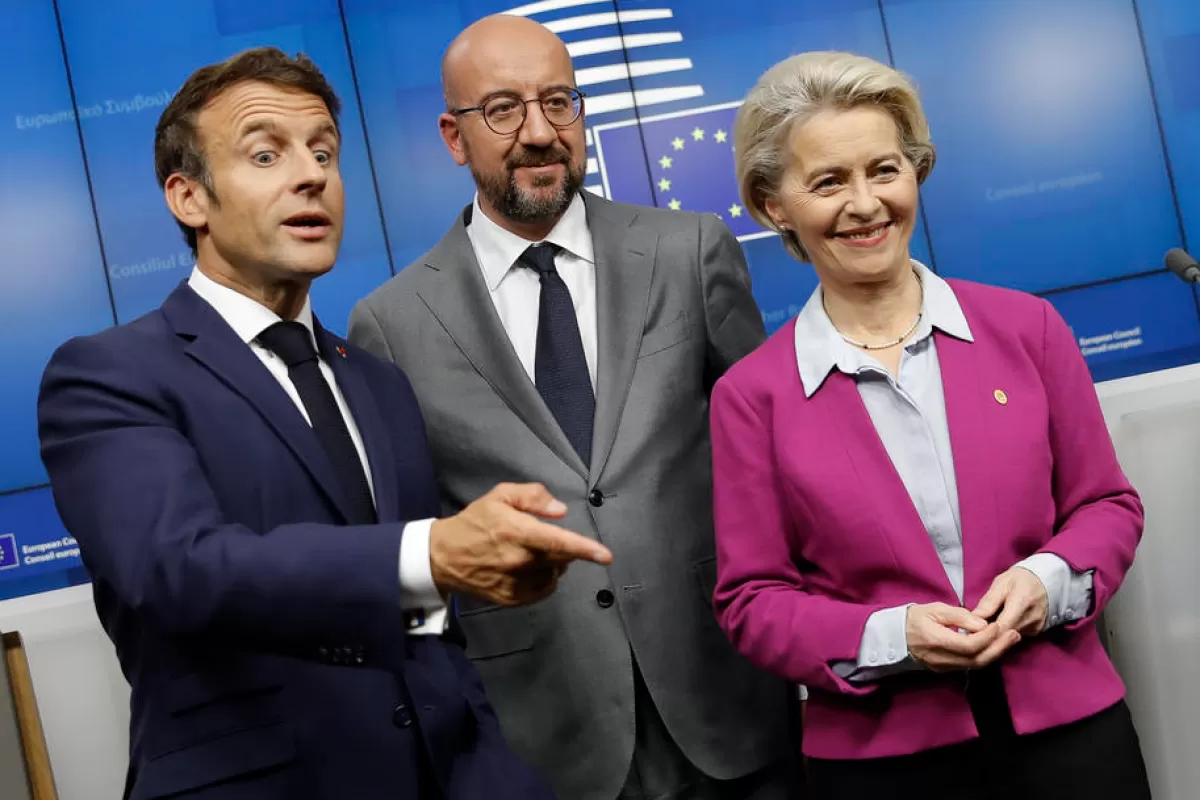
French President Emmanuel Macron's project for a “European Political Community” is back in the spotlight after months of not much talk about it. It is known that the project also targets partner states outside the EU, but it is not at all clear what it means for the countries that want to join the EU; there are fears that, through the formation of the Community, accession could be postponed indefinitely, that the executive in Brussels will support the French proposal.
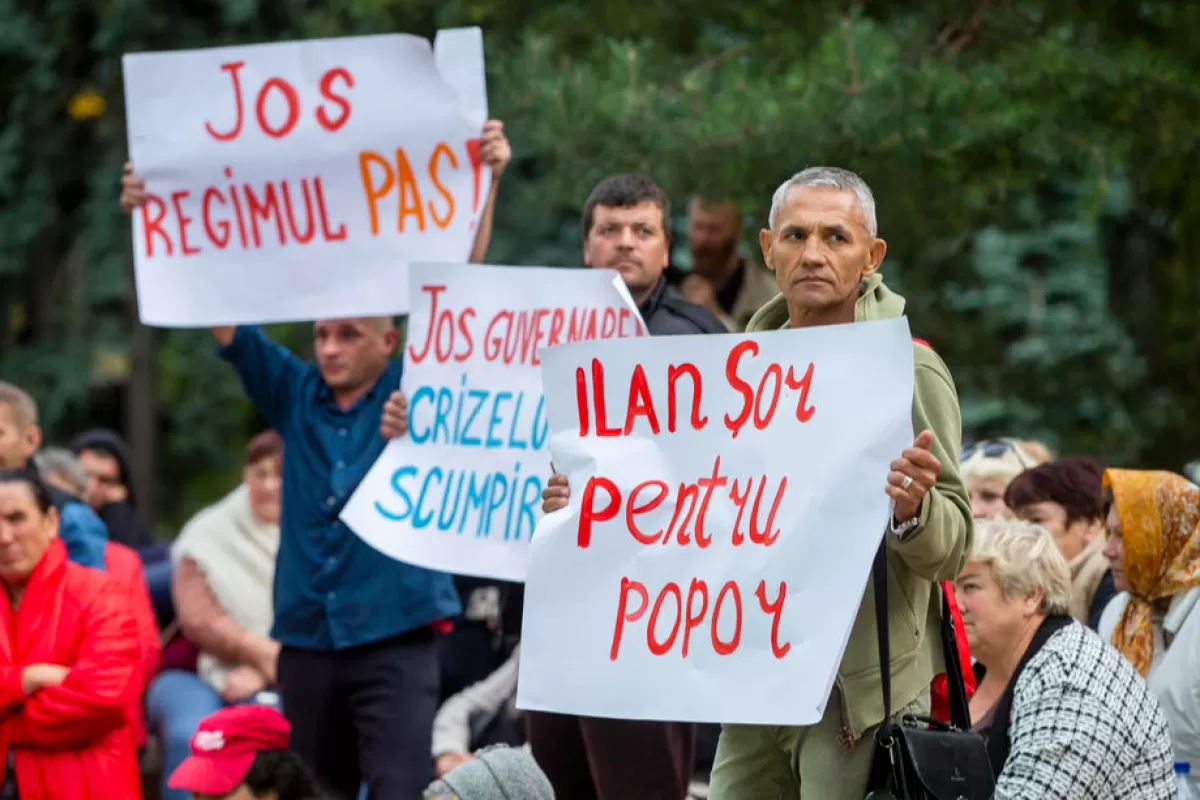
The internal stability of the Republic of Moldova is threatened by pro-Russian politicians who are trying to stir the pot by capitalizing on the numerous crises facing this country. The most vocal of them are politicians who’ve had run-ins with the law, such as Ilan Shor, the mastermind behind the “billion-dollar theft”, as well as former Socialist leader Igor Dodon, indicted on five distinct charges. Aware of their schemes, Moscow uses energy exports as blackmail.
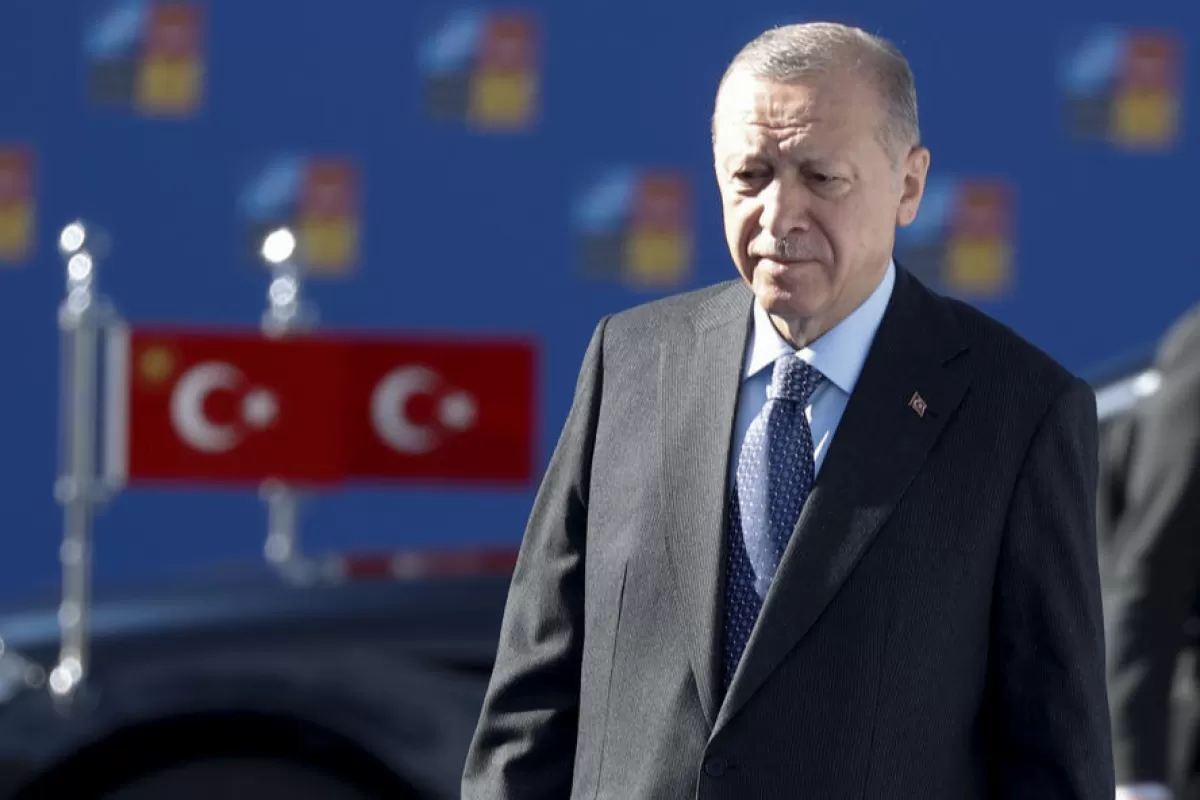
The relationship between Turkey and Greece is once again marked by tension, and Ankara's tough statements have made some observers wonder if this time there will be military confrontations. However, the current crisis seems to be related to the efforts made by the regime in Ankara to divert attention from domestic problems rather than to the old rivalry between the two countries.

The Republic of Moldova has increasingly distanced itself from Russia since the pro-European forces came to power in Chisinau following the early parliamentary elections of July 2021. The new government has taken a series of measures to reduce Moscow's influence and the dependence on it and sought, at the same time, to get in line, as much as possible, with the Western stands.
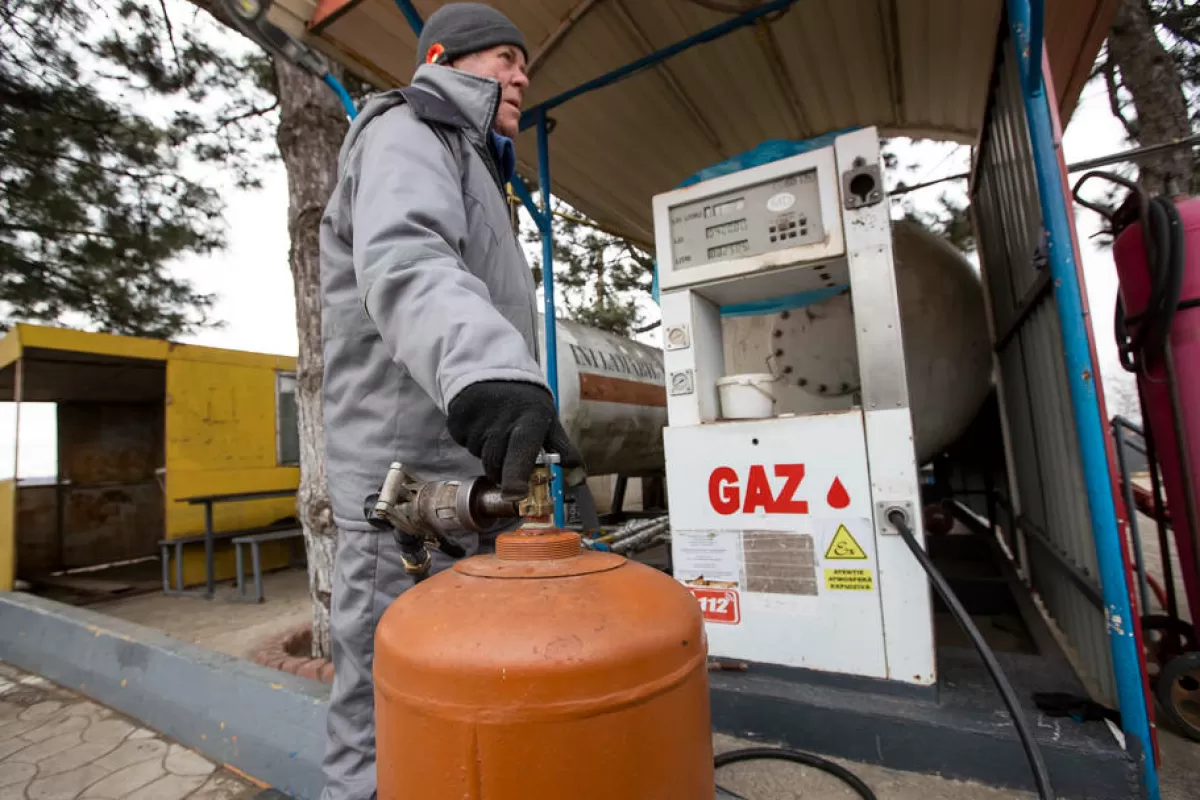
The Republic of Moldova could face a number of serious challenges this autumn, given that Russia wants to bring this country back into its orbit. At domestic level, Moscow is expected to use any leverage it has in the separatist region of Transnistria and in Găgăuzia. Adding to these pressure points will be the country’s energy concerns.

Most Ukrainians believe their country will win the war against Russia, reads a recent survey carried out by the International Republican Institute. The study also reveals that Ukrainians continue to argue in favor of Euro-Atlantic integration, although their perception of NATO reported fluctuations due to delays or readiness to provide military assistance, and they remain critical of their elected officials, despite the war.
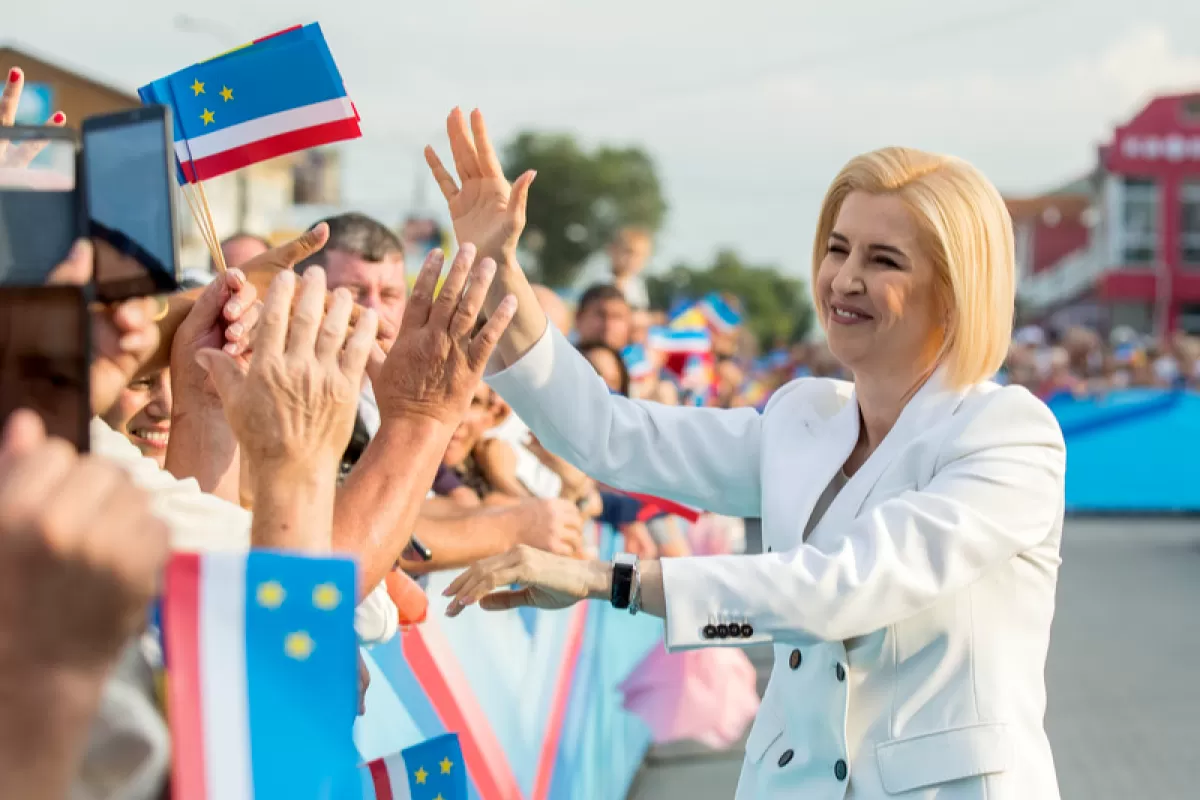
Găgăuzia is perhaps the most pro-Russian region in the Republic of Moldova. A breakaway region since the early 90s, Găgăuzia eventually recognized Chișinău’s sovereignty, although it wants to break with this country in the event of a unification with Romania or even EU accession.

Uncertainty linked to the official language of the Republic of Moldova, 31 years after this country proclaimed its independence, reflects just how hard defining and accepting a national identity has been. The country’s inability to settle linguistic disputes and break away from “Moldovenism”, a Soviet construct, is one of Chișinău’s many failures: after 31 years of independence, the country is still unable to fully control its territory and to ensure its energy and military security.

Europe is facing the most severe drought in the last 500 years, but it is not the only continent affected by this phenomenon. The global scale of drought is yet another consequence of climate change. Water – the element that is vital for survival and key to industry and agriculture – has become increasingly disputed globally, its shortage producing economic, humanitarian and security crises.

Russian experts and the independent media have analyzed the state of the Russian Federation’s army, which is sustaining heavy losses in the war launched against Ukraine. They also write about the obsolete Soviet weapons used by the Russians, which produce casualties among both the civilian population and among the attackers themselves. They also discuss how the war has changed the media landscape in Russia.

Sharing a 1000-kilometer long border with Ukraine, the Republic of Moldova has been affected by the war started by Russia on February 24 too. Veridica has spoken with several analysts in Chisinau to learn more about the main problems facing the Republic of Moldova, a state that is simultaneously facing an economic and an energy crisis, while at the same time trying to deal with a significant number of Ukrainian refugees.

By joining NATO, Finland and Sweden would make the Alliance the main power in the Baltic Sea. Together, the two countries boast efficient and highly trained air, sea and ground forces, a good defense industry, and quick response capabilities. They occupy strategic position. And they would greatly consolidate the security of NATO’s most vulnerable member states – the Baltic countries.
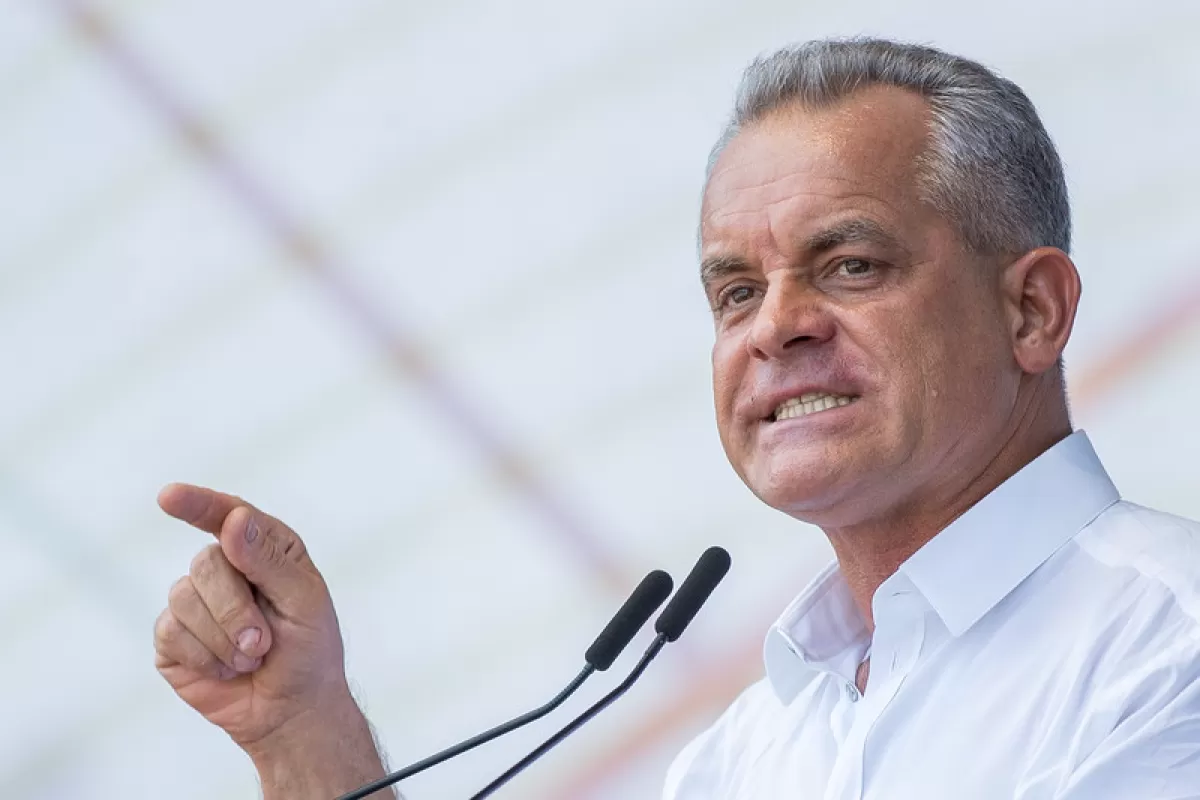
The European track of the Republic of Moldova involves a break with its recent past, when the country was virtually at the mercy of highly influential oligarchs, who used their political leverage and media influence to create a genuine kleptocracy. One solution would be to apply the model employed by Ukraine, a country that passed a anti-oligarchic law.